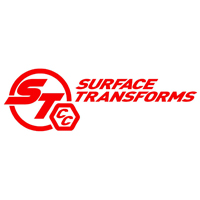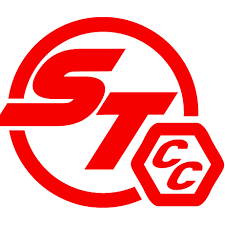Surface Transforms plc (LON:SCE) is the topic of conversation when Hardman and Co’s Analyst Mike Foster caught up with DirectorsTalk for an exclusive interview
Q1: Mike, we’re talking about Surface Transforms today, first of though, what is Surface Transforms?
A1: It’s is a highly technically specialized engineering component supplier to the automotive industry and the product that it makes is selling into a market which is currently only about £100 million so at the moment very very niche but the market is going to grow pretty soon to £2 billion plus.
For nearly a decade, it has been perfecting its carbon ceramic brake disc component which is for the aero but mostly the auto industry. These customers, as we’ll explain, have bought in to the need for much more of this product, carbon ceramic brakes, in their cars and they also, at the moment, the customers are tending to worry that there’s only one supplier right now, Surface Transforms’ European competitor.
Q2: Now, you say ‘perfecting’, does that mean that it’s playing catch-up?
A2: It’s got a superior product to the competition, which stems from its greater expertise in getting the chemistry and machining of the make-up of the carbon fibres it uses into making the discs just right, it makes the discs for the brakes. The competitor has around £100 million sales revenue, as I said, and Surface Transforms to date has had a revenue range of about plus or minus £1 million only and that’s to customized and race track cars but it does have a superior product for sure.
Q3: If Surface Transforms are superior, why is it not selling in orders of magnitude or greater amounts?
A3: The auto market is about getting designed-in to forthcoming models and for this product, it’s to the upper-middle and luxury cars, for the likes of Aston Martin but also very much the larger-selling brands such as well-known German names and others.
It has also been about demonstrating the ability to supply immediately and in volume, a new factory opened earlier this year, with new equipment coming in being rolled out throughout 2017 with capacity in cell 1, for discs which would generate some £16 million per annum turnover and as I say they’ve been achieving about £1 million a year to date. The factory has room for five of these manufacturing cells so that’d be £80 million of revenue, with each cell being a replica of the first, so it’s pretty easily rolled out from an operational point of view.
Q4: So, now the new factory’s in place, is it making the auto manufacturers take Surface Transforms seriously?
A4: The auto manufacturers know all about Surface Transforms and it’s achieved a great position as of now. It’s in detailed discussions linked to advanced and pretty in-depth road tests which we all know take a long time for existing car products let alone the newer, next-generation components like carbon ceramic discs. These tests are in many stages, very rigorous, very rational and often last years, the manufacturers have sunk real commitment to the Surface Transforms’ tests.
Q5: So, which auto manufacturers are about to order from Surface Transforms?
A5: There are pre-production contracts, generating small income even before start of production, from a very well-known German auto manufacturer. The eventual size of this one contract, when it becomes full-production, were it to be signed, would be £10 million a year and there are five other well-known auto names with tests ongoing and by ongoing, most of them are pretty advanced.
In the 2018 racing season, this is the pre-full production we’re talking about, there is a signed contract for £0.5 million a year income. We would be shocked if most of the six OEM’s that its talking to don’t bring in revenue so we model £7.5 million of sales, 2 financial years from now, then £10.9 million then £16 million and exponential growth, thereafter.
Q6: You mentioned exponential growth yet this is some years away and carbon ceramic brakes are expensive, aren’t they?
A6: Yes, to be clear, it’s the brake discs not the pads, the trick is to design in the discs to the models which reduces the car’s weight by 5% plus or minus and that 5% makes a huge difference to fuel use, especially if you remember emissions targets and the focus on that which is not going to go away, as well as performance. So, they aren’t expensive on that basis, they’re kind of increasingly going to be a must-have, they last 4 times as long as well. Just like anti-lock brakes which were once luxury-end expensive, they’re now standard.
This is a well-followed path, it really is, you have a superior product, the auto companies tiptoe in for a few years to be 100% sure it’s a great product and then there’s a huge expansion in sales. This is the exponential growth.
The market is £100 million right now so it’s not nothing, 99% of which is with the one competitor selling to specialist and modified cars so there’s is every way to see this as a £1/£2 billion and more market size and pretty soon, in auto industry terms. We’ve gone through the ‘looking and testing’ phase, this is now just soon ‘pressing the button’ designing in to future models.
Q7: I have to admit, it does sound exciting but what does it mean for Surface Transforms specifically?
A7: The auto manufacturers want a product which has been tested up and down, inside and out and talking about these road tests, that’s 99% done. They want a factory in place ready to press the button for the designed-in to the models, as of Spring 2017, that factory is in place, done. There’s a rollout of extra capital equipment arriving this half-year and very start of 2018 but the big move to the new factory, that’s all gone smoothly. They want a dual source of supply in case a supply-chain company having problems, only when there are two or more suppliers will they buy-into the product, as of now, that’s a tick from the Surface Transforms factory. So, the previous factory, I have to emphasize, was good but only there in small batches to learn how to optimize the very difficult manufacturing processes which can go up to 3000 degrees in heat. So, yes, it is exciting, it’s all in place now with this factory.
We don’t see a third supplier anywhere on the horizon but as I said, it’s a £1/£2 billion market anyway, it’s a huge market, the third supplier could only be there after at least three years lead time, many would say longer. The existing competitor will grow but we don’t really see there being a visibility of very significant exponential growth there.
The manufacturers, as I say, want two fully-fledged suppliers, Surface Transforms might fail to achieve £50/£100 million sales in the next few years, nothing’s guaranteed in life. We find it very difficult to make a logical analytic case for not beating those numbers given that it could be a market easily £1/£2 billion in size with two suppliers, maybe a third coming at some stage but not on the horizon.
Q8: I think you did hint at this but what are the risks involved?
A8: Auto manufacturers work to their own timetables, they’re very rigorous and they have long lead times for models, this is nothing out of the norm for any product but for a small supplier spending all its gross profits and more just on the R&D, let alone running costs, it’s frustrating.
Surface Transforms has got some revenues and it’s got a bit over £4 million in the bank, we estimate, so they can certainly cope with some delays which we trust won’t come about but we live in the real world.
One problem we don’t see is gross margins, I think that they will be pretty resilient because they’ve got this good product that the car manufacturers, when they want it, really will need to have it and the manufacturing is de-risked now it’s got the new factory.
Q9: Yet this company isn’t forecast to make a profit till the start of 2020?
A9: No, that’s right and there are no volume contracts in place at this point in time, there are some pre-production contracts, there’s sales to the race track cars and the modified special versions but it’s very low revenue at the moment.
The 2020 figure, that’s based on the start of production designed-in to mainstream upper-mid market models starting in 2019, after some limited-edition sales in mid-2018 that I referred to. So, let’s be clear, Surface Transforms has had modest sales for ten years plus but just one luxury-style volume model growth would be £10 million plus of annual revenue and it’s talking to six, not just one.
Gross margins are 60% plus and there’s the R&D costs, the factory and overhead costs but with those revenues just on one contract, £10 million, and the 60% gross margins, we would certainly see breakeven at around about £7 million of sales, that’s a pretty low number at which to achieve breakeven. So, if they’re going to going to get £50/£100 million of sales in the next few years, admittedly some years out just beyond a five-year horizon few would say, that would generate £30- £60 million of gross margins before the costs of the overheads and this is a company with a market cap of £20 million. So, there’s always risk, for sure, but here is significant reward.


